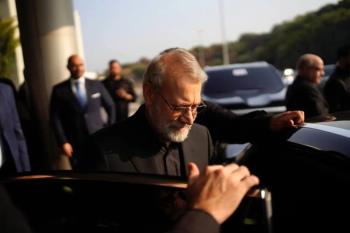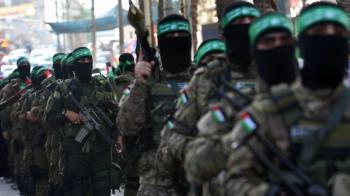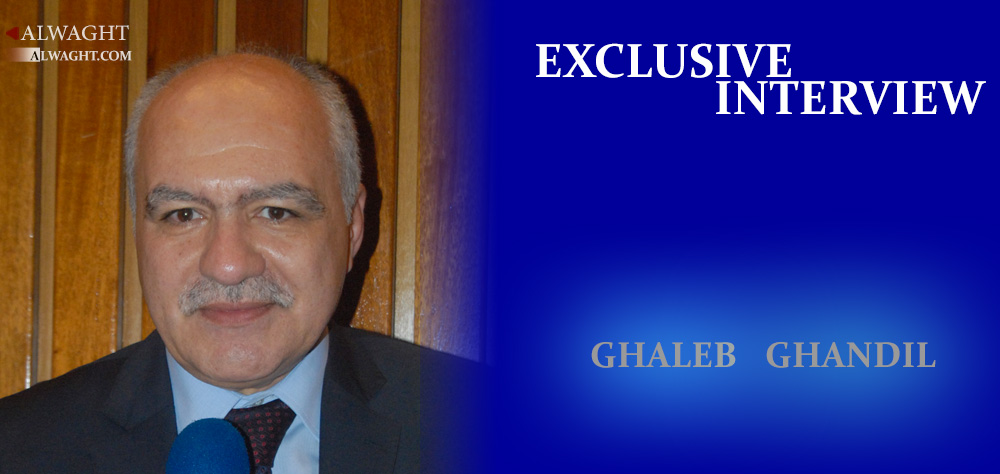Alwaght- The Alwaght has conducted an interview with Professor Ghaleb Qandil, the chairman of the New East Center for Strategic Studies, covering an array of topics including West Asia region’s changes, recent Saudi Arabian diplomatic moves which once have been slow in regional cases generally, fast-moving regional developments, the talk about the need for finding ultimate settlements for the regional crises and the latest developments of Saudi-Egyptian relations.
Alwaght- The Jordanian King Abdullah II addressed two months ago the US Congress, warning that a third world war was in its way to the region. Some have interpreted that the recent Saudi moves are actually a preparation for the global war especially that the region is living tense conditions and, at the same time, seeing a growing Iranian influence and power, which is considered by Riyadh a threat. What do you think about it?
Qandil: This is baseless. Everybody in the region knows that a third world war never takes place due to balanced nuclear deterrence in the world. This is something certain. Furthermore, everybody is well aware that consequences of such risking are destructive for all sides. If the aim is to wage a war against Russia, China or Iran, this means that it is an adventure doomed to cause a great catastrophe. If the aim is a war against Iran, then it is a choice Washington has tested before going to a nuclear agreement with Iran according to which the West generally, and not just the US, admitted Iran’s rights for use of peaceful nuclear energy. What concerns the kingdom is this Western submission to Iran’s nuclear rights and the growing Tehran’s role. As a result, Saudi Arabia and the Zionist regime have launched a joint effort to push the US to involve in a war with Iran. But, to the disappointment of Riyadh and Tel Aviv, the US President Barack Obama has quitted his threat to strike Syria in 2013 and at the same time went to nuclear negotiations with Iran. This is an essence of the US political and military administrations’ calculations as it came up with the notion that it needed to come to terms with the new realities rather than entering an insane military adventure.
Alwaght: Concerning Egypt, do you think that money is the reason of all this Egyptian bowing before Saudi Arabia or there are other reasons? Would Riyadh exploits Egypt’s troubled economic conditions? How do you think the Egyptians as a nation would deal with that?
Qandil: Yes, without doubt the Egyptian leadership, since election of President Abdel Fattah el-Sisi, has followed the policy of siding with the US and Saudi Arabia. Behind the scenes, Egypt justifies taking this position with its desperate need for aids and funding. Certainly, Egypt is experiencing a real economic crisis. Fortune making in Egypt is in disappointing state. These are the reasons of major troubles hitting the Egyptian community, the most outstanding of which are the wide-ranging unemployment and government’s income deficit. But, the problems actually originate from the government’s choices. The Egyptian leadership has not showed any plan for diversifying its income sources or reviewing the economic policies or taking steps independent of the will of the World Bank, the International Monetary Fund (IMF) or the foreign financial sources, because they are limited. The recent Saudi-Egyptian agreements have come with a larger size, of billions of dollars of loans, and thus heavier burdens of debts on the Egyptian economy. This is what has caused a bigger economic crisis, and put the Egyptian economy in rasp licking game. On the other hand, the Egyptian leadership does not enjoy the power to face the challenges and develop new partnerships with newly emerging eastern powers like Russia and Iran which could guarantee a real Egyptian economic growth and a high-level Cairo’s role in the region proportionate to Egypt’s potentials.
Alwaght- Do you think that Saudi Arabia’s acquisition of the Egyptian Sanafir and Tiran islands in the Red Sea would be a justification for open Saudi-Israeli ties because the islands are located in an area covered by Camp David accords between Cairo and Tel Aviv?
Qandil: The Saudis have openly expressed that the kingdom has agreed to respect the terms of Camp David accords which guarantee the Israeli security interests near the two islands. The case is clear and does not take too much explanation as we know that in past few years the Israeli-Saudi relations have witnessed a great progress though they are not publicized.
Alwaght- Would the acquisition of the Egyptian islands by Saudi Arabia push publicizing the Tel Aviv-Riyadh ties as the world community puts Riyadh under a legal obligation to show commitment to the terms of Camp David accords?
Qandil: This is possible, but it is obvious that the Saudi leadership is well aware of how costly could be publicization of Riyadh’s relations with Tel Aviv and upgrading of the secret relations to open economic, political and security cooperation. Therefore, Saudi Arabia is afraid of publicization and so it resorts to clandestine diplomatic and intelligence relations. Could Saudis move to open ties? This is possible but the the costs for Riyadh would be huge. That is why Saudi Arabia tries to keep them secret.
Alwaght- As the last question, do you think that the coalitions that Saudi Arabia is trying to form is an effort to replace the pan-Arabism with pan-Sunnism in the face of a Shiite axis?
Qandil: I think that this has no pragmatic bases because we observed a popular rejection in several Arab states when the Arab League and the (Persian) Gulf Cooperation Council blacklisted Lebanon’s Hezbollah as a terrorist group. This indicates that the Arabian pulses could not be put down or hidden from the Arab world. It also lays bare the fact that resistance in the face of the Israeli regime and the takfirism and Hezbollah’s key role would remain uplifting factors for the Arab world from the (Atlantic) Ocean to the (Persian) Gulf. The attempts to destroy this identity and form hypothetical religious identities have not been successful. The recent events proved that the Arab world’s pulse is still beating and intensifying and moving to restoration despite all of the recent years’ happenings.



























